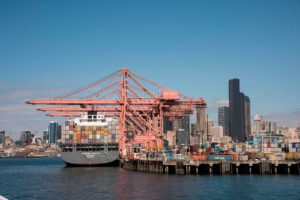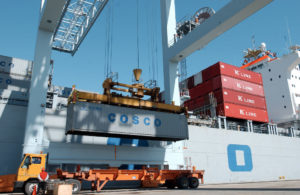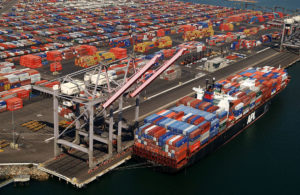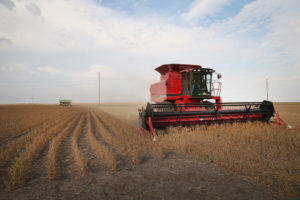-
February 2024
-
December 2023
-
November 2023
-
October 2023
- The Biden Impeachment Inquiry – Lesson
- The Biden Impeachment Inquiry – Quiz
- Israel vs Hamas: One Week in and Still at War – Lesson
- Israel vs Hamas: One Week in and Still at War – Quiz
- 2023 Nobel Prizes Announced – Lesson
- 2023 Nobel Prizes Announced – Quiz
- Trump Ordered Not to Mention Case Against Him – But Will It Last? – Lesson
- Trump Ordered Not to Mention Case Against Him – But Will It Last? – Quiz
-
September 2023
-
August 2023
-
July 2023
-
May 2023
-
February 2023
-
December 2022
-
November 2021
-
September 2022
-
August 2022
- The US Visits Taiwan Again – What Impact Will It Make? – Lesson
- The US Visits Taiwan Again – What Impact Will It Make? – Quiz
- Cold Showers and Hot Days: Europe Limits People’s Energy Use – Lesson
- Cold Showers and Hot Days: Europe Limits People’s Energy Use – Quiz
- Hidden Art Is Being Discovered Around the World – Lesson
- Hidden Art Is Being Discovered Around the World – Quiz
-
July 2022
- Last WWII Medal of Honor Recipient Will ‘Lie in State’ at US Capitol – Lesson
- Last WWII Medal of Honor Recipient Will ‘Lie in State’ at US Capitol – Quiz
- Canada and Denmark Make a Deal over Disputed Arctic Island – Lesson
- Canada and Denmark Make a Deal over Disputed Arctic Island – Quiz
- Texas Schools Spark Debate: What Should Kids Wear in Class? – Lesson
- Texas Schools Spark Debate: What Should Kids Wear in Class? – Quiz
-
June 2022
- New York Court Says: An Elephant is Not a Human – Lesson
- New York Court Says: An Elephant is Not a Human – Quiz
- Finance Classes at School – A New Trend? – Lesson
- Finance Classes at School – A New Trend? – Quiz
- NASA Will Study UFOs for the First Time – Lesson
- NASA Will Study UFOs for the First Time – Quiz
- New York City Removes Last Payphone – Or Does It? – Lesson
- New York City Removes Last Payphone – Or Does It? – Quiz
- US Hosts ‘Summit of the Americas’ – Lesson
- US Hosts ‘Summit of the Americas’ – Quiz
- The National Spelling Bee – A Time-Honored Tradition – Lesson
- The National Spelling Bee – A Time-Honored Tradition – Quiz
- Queen Elizabeth Marks 70 Years on Throne with Platinum Jubilee – Lesson
- Queen Elizabeth Marks 70 Years on Throne with Platinum Jubilee – Quiz
- Lifeguard Shortage Could Limit Summer Swimming – Lesson
- Lifeguard Shortage Could Limit Summer Swimming – Quiz
-
May 2022
- American Artist Warhol’s Painting Sells for Record Price – Lesson
- American Artist Warhol’s Painting Sells for Record Price – Quiz
- Western US Suffering From Harsh Drought – Lesson
- Western US Suffering From Harsh Drought – Quiz
- Time to Say Goodbye to Incandescent Lightbulbs? – Lesson
- Time to Say Goodbye to Incandescent Lightbulbs? – Quiz
- Tibetan Leader Visits Washington to Gain Support for His Culture – Lesson
- Tibetan Leader Visits Washington to Gain Support for His Culture – Quiz
-
April 2022
- Masks on Public Transport – Needed or Not? – Lesson
- Masks on Public Transport – Needed or Not? – Quiz
- Shanghai Under Strict Lockdown in ‘Zero-COVID’ China – Lesson
- Shanghai Under Strict Lockdown in ‘Zero-COVID’ China – Quiz
- Are Roundabouts a Good or Bad Addition to US Cities? – Lesson
- Are Roundabouts a Good or Bad Addition to US Cities? – Quiz
- Is it Chicken Kiev or Kyiv? A Scrumptious Spelling Problem – Lesson
- Is it Chicken Kiev or Kyiv? A Scrumptious Spelling Problem – Quiz
- Ketanji Brown Jackson Confirmed as Next Judge to Join Supreme Court – Lesson
- Ketanji Brown Jackson Confirmed as Next Judge to Join Supreme Court – Quiz
- Gas Prices Rise Dramatically Across America – Lesson
- Gas Prices Rise Dramatically Across America – Quiz
- Washington, DC Celebrates 110 Years of Cherry Blossoms in the City – Lesson
- Washington, DC Celebrates 110 Years of Cherry Blossoms in the City – Quiz
- Billionaire Elon Musk Tries to Buy Twitter – Lesson
- Billionaire Elon Musk Tries to Buy Twitter – Quiz
- Meet Patron, Ukraine’s Mine-Sniffing ‘Hero’ Dog – Lesson
- Meet Patron, Ukraine’s Mine-Sniffing ‘Hero’ Dog – Quiz
- Top American Officials Visit Ukraine in Secret – Lesson
- Top American Officials Visit Ukraine in Secret – Quiz
-
March 2022
- Supply Chain Crisis: Are Pop-Up Sites the Answer? – Lesson
- Supply Chain Crisis: Are Pop-Up Sites the Answer? – Quiz
- Fare Evaders Beware: New York Mayor to Tackle Subway Crime? – Lesson
- Fare Evaders Beware: New York Mayor to Tackle Subway Crime? – Quiz
- Time’s Up For Switching Clocks? Congress Considers Daylight Saving – Lesson
- Time’s Up For Switching Clocks? Congress Considers Daylight Saving – Quiz
- Ukraine’s President Addresses Congress as War Persists – Lesson
- Ukraine’s President Addresses Congress as War Persists – Quiz
- No More Meat? New York Mayor Decrees Vegan Fridays for Schools – Lesson
- No More Meat? New York Mayor Decrees Vegan Fridays for Schools – Quiz
- Big Business Shuns Russia Over Ukraine Invasion – Lesson
- Big Business Shuns Russia Over Ukraine Invasion – Quiz
- ‘People’s Convoy’ Loops Around US Capital in COVID Protest – Lesson
- ‘People’s Convoy’ Loops Around US Capital in COVID Protest – Quiz
- From Train Robberies to Stores – US Sees a Rise in Crime – Lesson
- From Train Robberies to Stores – US Sees a Rise in Crime – Quiz
- President Biden Gives His First State of the Union Speech – Lesson
- President Biden Gives His First State of the Union Speech – Quiz
-
February 2022
- Ukraine War Continues as Peace Talks Begin – Lesson
- Ukraine War Continues as Peace Talks Begin – Quiz
- US States Say Farewell to COVID Rules – Lesson
- US States Say Farewell to COVID Rules – Quiz
- Russia Launches Invasion of Ukraine – Lesson
- Russia Launches Invasion of Ukraine – Quiz
- Feuds Erupt as States Redraw Voting Maps – Lesson
- Feuds Erupt as States Redraw Voting Maps – Quiz
- Monobob Makes Olympic Debut – Lesson
- Monobob Makes Olympic Debut – Quiz
- Canadian Truckers Stage Major Protest Against COVID Laws – Lesson
- Canadian Truckers Stage Major Protest Against COVID Laws – Quiz
- U.S. Sends Troops to Europe as Ukraine-Russia Tensions Rise – Lesson
- U.S. Sends Troops to Europe as Ukraine-Russia Tensions Rise – Quiz
- Winter Olympics Begin in Beijing Amid Calls for Boycott – Lesson
- Winter Olympics Begin in Beijing Amid Calls for Boycott – Quiz
- Afghanistan Faces a ‘Tsunami of Hunger’ Under the Taliban – Lesson
- Afghanistan Faces a ‘Tsunami of Hunger’ Under the Taliban – Quiz
- Dealing With Omicron: COVID Rules Around the World – Lesson
- Dealing With Omicron: COVID Rules Around the World – Quiz
-
January 2022
- Teen Pilot Becomes Youngest Girl to Fly Solo Around the World – Lesson
- Teen Pilot Becomes Youngest Girl to Fly Solo Around the World – Quiz
- No More Meat and Potatoes? Supply Down and Prices Up – Lesson
- No More Meat and Potatoes? Supply Down and Prices Up – Quiz
- Flight Confusion as 5G Causes Safety Worries – Lesson
- Flight Confusion as 5G Causes Safety Worries – Quiz
- English Translations on French ID Cards? Some say ‘Non!’ – Lesson
- English Translations on French ID Cards? Some say ‘Non!’ – Quiz
- Omicron: Did COVID Catch the Common Cold? – Lesson
- Omicron: Did COVID Catch the Common Cold? – Quiz
- Five Countries Agree: Nuclear War Must Be Avoided – Lesson
- Five Countries Agree: Nuclear War Must Be Avoided – Quiz
- Enes Kanter’s American Dream Come True – Lesson
- Enes Kanter’s American Dream Come True – Quiz
- U.S. Bans Products Linked to Uighur Slavery – Lesson
- U.S. Bans Products Linked to Uighur Slavery – Quiz
- Time Capsules Found in Base of Robert E. Lee Statue – Lesson
- Time Capsules Found in Base of Robert E. Lee Statue – Quiz
-
December 2021
- Russia and US Lock Horns Over Ukraine Border – Lesson
- Russia and US Lock Horns Over Ukraine Border – Quiz
- US Military Starts New UFO Research Group – Lesson
- US Military Starts New UFO Research Group – Quiz
- Omicron COVID Strain Comes Out of South Africa – Lesson
- Omicron COVID Strain Comes Out of South Africa – Quiz
-
November 2021
- La Niña Weather Patterns May Affect the US This Winter – Lesson
- La Niña Weather Patterns May Affect the US This Winter – Quiz
- Dads on Duty Help Out at Louisiana High School – Lesson
- Dads on Duty Help Out at Louisiana High School – Quiz
- The Price of Thanksgiving Goes Up in 2021 – Lesson
- The Price of Thanksgiving Goes Up in 2021 – Quiz
- Airlines Struggle with Flights Ahead of the Holidays – Lesson
- Airlines Struggle with Flights Ahead of the Holidays – Quiz
-
October 2021
- Crisis and Kidnappings in Haiti – Lesson
- Crisis and Kidnappings in Haiti – Quiz
- US Feels Effects of Computer Chip Shortage – Lesson
- US Feels Effects of Computer Chip Shortage – Quiz
- California Oil Spill Investigations – Lesson
- California Oil Spill Investigations – Quiz
- Michigan Governor Vows to Fix Lead-Infected Water Supply – Lesson
- Michigan Governor Vows to Fix Lead-Infected Water Supply – Quiz
- Nobel Prize Winners Announced – Lesson
- Nobel Prize Winners Announced – Quiz
- COVID and School – Rules Vary Across the Nation – Lesson
- COVID and School – Rules Vary Across the Nation – Quiz
- Toilet Paper Shortage 2.0? – Lesson
- Toilet Paper Shortage 2.0? – Quiz
- A Very Merry COVID Homecoming? – Lesson
- A Very Merry COVID Homecoming? – Quiz
- Merck COVID Pill – A New Way to Treat the Virus? – Lesson
- Merck COVID Pill – A New Way to Treat the Virus? – Quiz
- Eruptions at La Palma and Kilauea Volcanoes – Lesson
- Eruptions at La Palma and Kilauea Volcanoes – Quiz
-
September 2021
- US Joins UK and Australia in ‘AUKUS’ Defense Deal – Lesson
- US Joins UK and Australia in ‘AUKUS’ Defense Deal – Quiz
- Rules Change for Travelers to the US – Lesson
- Rules Change for Travelers to the US – Quiz
- Is There a Crisis at the Southern Border? – Lesson
- Is There a Crisis at the Southern Border? – Quiz
- What’s Going On With COVID-19? – Lesson
- What’s Going On With COVID-19? – Quiz
- Biden Announces 6-Step COVID Plan – Lesson
- Biden Announces 6-Step COVID Plan – Quiz
- Private Rescue Missions in Afghanistan – Lesson
- Private Rescue Missions in Afghanistan – Quiz
- China’s Crackdown on Video Games – Lesson
- China’s Crackdown on Video Games – Quiz
-
August 2021
- US Military Has Left Afghanistan – But What About Those Left Behind? – Lesson
- US Military Has Left Afghanistan – But What About Those Left Behind? – Quiz
- Hurricane Ida Tests New Orleans – Lesson
- Hurricane Ida Tests New Orleans – Quiz
- Records Set for Paralympic Games – Lesson
- Records Set for Paralympic Games – Quiz
- Storms in Tennessee and Northeast Cause Floods – Lesson
- Storms in Tennessee and Northeast Cause Floods – Quiz
Supply Chain Crisis: Are Pop-Up Sites the Answer? – Lesson

Container ship loads in the shadow of Seattle, Washington’s skyline. (Photo by: Education Images/Universal Images Group via Getty Images)
US cities are trying new ways to get goods on the move once again.
Thanks to the supply chain crisis left over from the COVID-19 pandemic, people are seeing the cost of goods rising while also waiting longer to receive them. There are shortages of everything from foods to computer chips and automobiles. Cargo containers wait at shipping yards for ships to become available, and other modes of transport are backed up, too. Can anything be done to get items on the move again? The city of Seattle may have found a solution to help ease the traffic congestion and supply shortage – pop-up sites.
What is the Supply Chain Crisis?
When was the last time you ate a vegetable grown in your state? Or bought a pair of shoes made in your town? In the modern world, many items are no longer made in the same area where the customer will buy them. Things are grown or manufactured and then shipped across the world to a customer far away. This creates a very complicated “supply chain,” where an object is first made, then transported, then eventually gets to its final destination.

(Photo by Darren McCollester/Getty Images)
Since the system is so complex, even a small problem can cause major delays. Due to COVID rules and lockdowns around the world, the pandemic caused a “supply chain crisis,” as many stages broke down.
Seattle’s Solution
American farmers have been trying to sell their crops to countries in Asia, but a big problem is transport. Near Seattle, lots of empty shipping containers have piled up, causing congestion and delays in transport. Seattle is hoping to help farmers by opening a pop-up location where they can store their produce, ready to get shipped overseas.
The United States Department of Agriculture (USDA) has promised to give money to help move containers packed with agricultural goods to the pop-up site near the Seattle shipping terminals. The USDA’s Farm Service Agency will pay agricultural companies $200 per dry container and $400 per refrigerated container filled with American-grown goods.

These payments are meant to help food producers with their shipping costs, which shot up in the past year. It will also, hopefully, free up space to store products that are ready to be placed on ships.
The Northwest Seaport Alliance said US agricultural exports decreased by one third in the last six months of 2021. In fact, most of the containers leaving Seattle since May 2021 have been empty.
Last year, Washington sent $1.1 billion in food products to Japan, the state’s Department of Agriculture explained. Another $518 million in goods from Washington went to China, $459 million went to South Korea, and $343 million to the Philippines. The state’s top food export is seafood, and more than $1 billion in products was shipped in 2020.

(Photo by David McNew/Getty Images)
Transport Problems
Shipping containers are in demand, not just in America, but around the world as well. Asian manufacturers need containers to send products to the US, which Americans are waiting impatiently to receive. Meanwhile, American farmers can’t get containers to transport supplies to the Asian markets.
It is difficult for farmers to find transportation for their crops, which could spoil if they have to sit for days waiting for a container. Washington Senator Maria Cantwell says the growing season in her state will be ramping up in the coming weeks, and containers will be needed to transport hay, dairy products, grains, and other goods that will be shipped across the world.

(Photo by Scott Olson/Getty Images)
Making matters even worse, some shipping companies have taken advantage of the pandemic by charging huge amounts for farmers and other manufacturers to use their containers and ships.
These new pop-up sites are designed to help with the container and storage shortages while easing the cost for farmers. The Seaport Alliance and other groups have added 60 acres of storage space. Other areas, such as Oakland, California, and Savannah, Georgia, also added extra space in their ports earlier this year.